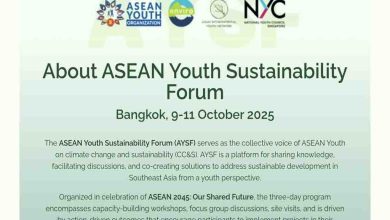Indus Waters Treaty Crisis: Pakistan’s Bold Response to India’s Suspension (2025 Update)
Pakistan responds boldly to India's suspension of the Indus Waters Treaty. Learn about the Indus Waters Treaty Crisis, Pakistan's legal steps, and potential global impacts.
The Indus Waters Treaty Crisis has reached a boiling point in 2025, following India’s controversial decision to suspend the decades-old agreement. Pakistan has swiftly responded, signaling that it will defend its rights with determination. As the situation escalates, Pakistan’s Indus Water Commission has initiated key steps to address the crisis and protect national interests.
India’s Suspension of the Indus Waters Treaty
In a move that has stunned the international community, India recently announced the suspension of the Indus Waters Treaty. This historic treaty, brokered by the World Bank in 1960, had long been seen as a shining example of peaceful resource sharing despite political tensions.
However, tensions reignited following a false flag operation in Pahalgam, Kashmir, which India blamed on external forces. Citing national security concerns, India unilaterally moved to suspend the treaty, a step experts label as illegal and provocative.
Learn more about the Indus Waters Treaty history.
Pakistan’s Immediate Reaction
Pakistan’s leadership wasted no time. Prime Minister Shahbaz Sharif held emergency meetings with top officials. In a strong statement, Pakistan warned that blocking the Indus waters, crucial for 240 million citizens, would be considered an act of war.
The Indus Water Commission of Pakistan immediately began reviewing India’s actions. They stressed that Pakistan’s legal and constitutional position remains robust and that India’s suspension is a wrongful unilateral violation.
Formation of a Strategic Think Tank
One of the first major moves in addressing the Indus Waters Treaty Crisis was the formation of a high-level think tank. This team includes senior experts from:
-
Ministry of Foreign Affairs
-
Ministry of Water Resources
-
Pakistan’s Indus Commission
The think tank’s urgent mission is to analyze the suspension, draft strategic recommendations, and assist the government in navigating the unfolding crisis.
By combining diplomatic, legal, and technical expertise, the think tank aims to prepare Pakistan for every scenario, from bilateral talks to international arbitration.
Pakistan’s Diplomatic and Legal Measures
Pakistan is preparing a multi-layered response to the Indus Waters Treaty Crisis, focusing on both diplomatic and legal fronts.
1. Approaching the World Bank
Pakistan plans to engage the World Bank, which acted as a guarantor during the 1960 treaty. Officials aim to force India back into compliance or pursue penalties under international law.
2. Engaging the United Nations
Should diplomatic efforts fail, Pakistan may escalate the matter to the United Nations Security Council. Water security is intrinsically linked to human rights and international peace, making it a valid concern for the UN.
3. Legal Battle
Pakistan’s legal experts are already drafting a comprehensive case. By involving internationally recognized legal consultants, Pakistan aims to expose India’s actions as violations of international law and treaty obligations.
The Importance of the Indus Waters Treaty
The Indus Waters Treaty is often cited as one of the most successful examples of conflict resolution. Under the treaty:
-
Pakistan controls the Indus, Jhelum, and Chenab rivers.
-
India controls the Sutlej, Beas, and Ravi rivers.
This division of the rivers ensured stable water supplies for both nations. Pakistan’s agriculture sector, which employs nearly 40% of its workforce, is especially dependent on uninterrupted river flows.
Any disruption threatens not just food security but also economic stability, potentially sparking mass unrest.
Potential Global Repercussions
The Indus Waters Treaty Crisis could trigger global economic and security concerns:
-
Regional Instability: Tensions between two nuclear-armed neighbors could escalate into military conflict.
-
Humanitarian Crisis: Water shortages could lead to massive displacement and food shortages.
-
International Mediation: Global powers like China, Russia, and the United States might be forced to mediate to prevent conflict.
Environmentalists also warn that politicizing water access during a time of climate change-induced water scarcity could have devastating global consequences.
Read about the global impact of water conflicts.
Conclusion: The Road Ahead
The Indus Waters Treaty Crisis has brought South Asia to the brink of an unprecedented conflict over water rights. Pakistan’s swift, calculated response—through diplomacy, legal channels, and international engagement—reflects its seriousness about protecting its national interests.
While Pakistan remains committed to a peaceful resolution, it has made it clear: blocking its rightful access to the Indus waters would be seen as an act of aggression.
The world now watches closely as two of Asia’s largest nations navigate this tense moment. Whether the Indus rivers continue to be a symbol of peace—or become a flashpoint for war—depends on the decisions made in the coming weeks.







